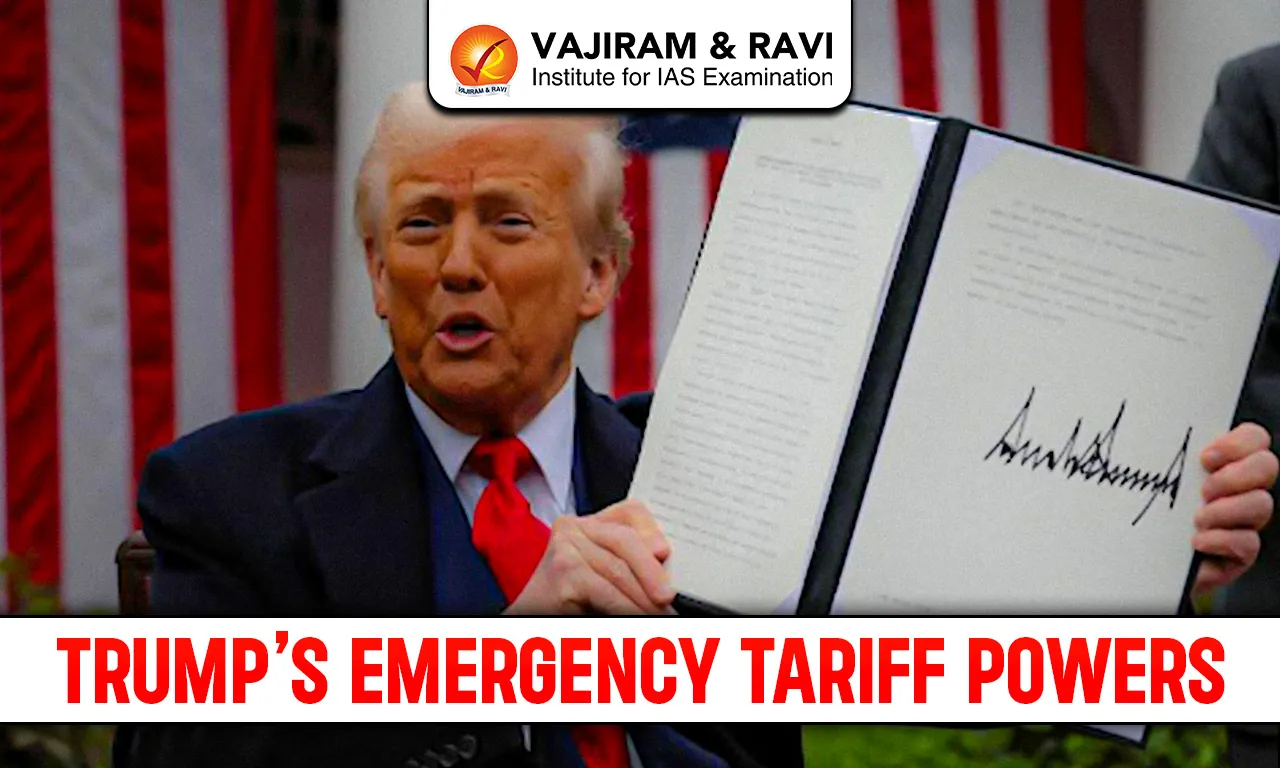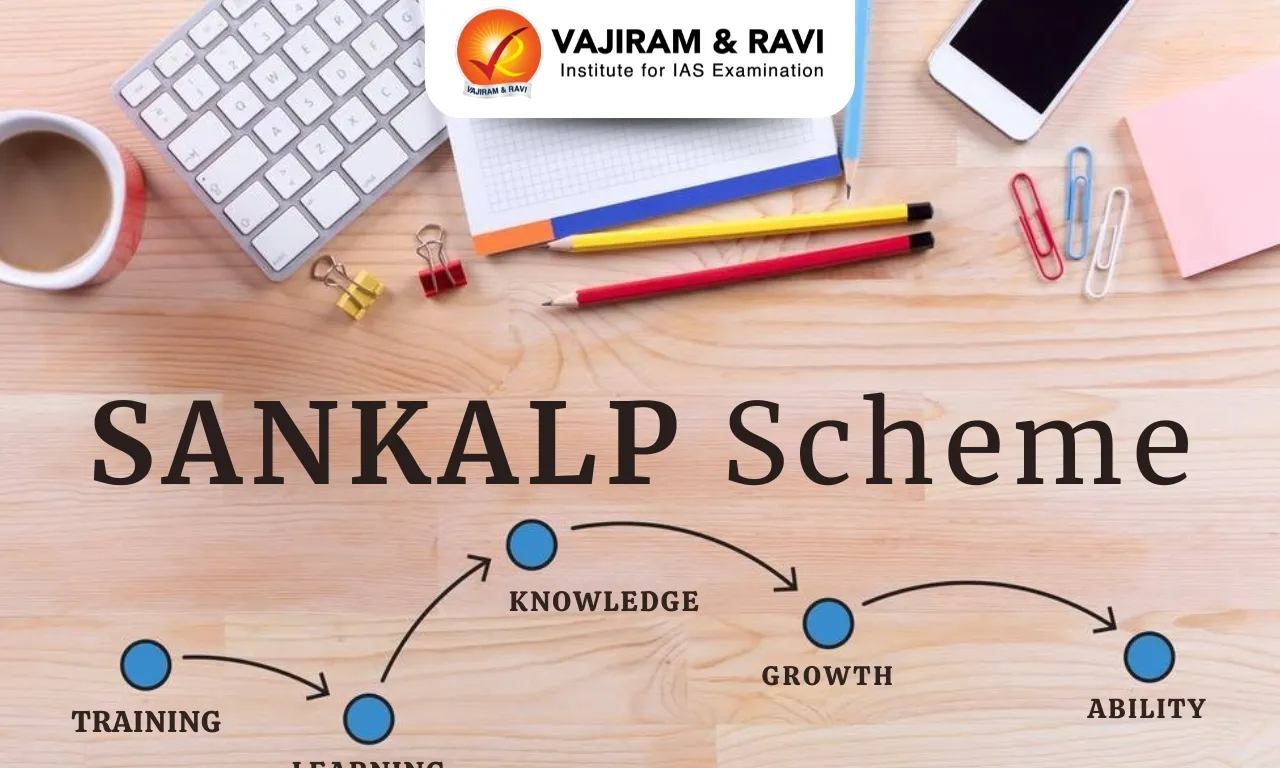What’s in Today’s Article?
- State’s Right to Acquire Private Property Latest News
- State’s Right to Acquire Private Property: Eminent Domain and Historical Background
- State’s Right to Acquire Private Property: Global Perspective on Property Rights
- State’s Right to Acquire Private Property: Land Acquisition in India
- Conclusion
- State’s Right to Acquire Private Property FAQs
State’s Right to Acquire Private Property Latest News
- Amid President Donald Trump’s accusing South Africa of confiscating private land, the article discusses the evolution of laws governing land acquisition and property rights in different countries, including South Africa, the US, and India.
- It highlights the balance between private property rights and the state’s power of eminent domain.
State’s Right to Acquire Private Property: Eminent Domain and Historical Background
- The concept of eminent domain refers to the authority of the state to acquire private land for public use, with or without compensation.
- The term traces back to Hugo Grotius in 1625, who described the idea that a sovereign can take private property for public necessity.
- The principle traveled to European colonies and influenced laws such as:
- Land Acquisition Act, 1894 (India)
- Expropriation Act, 1975 (South Africa)
State’s Right to Acquire Private Property: Global Perspective on Property Rights
- United Kingdom:
- Magna Carta (1215) was the first instance where limits were placed on the King’s power to arbitrarily take property.
- It required that land could only be taken “by the law of the land.”
- United States:
- The Fifth Amendment (1791) states that private property cannot be taken for public use without just compensation.
- In Kelo v. City of New London (2005), the US Supreme Court ruled that property acquisition to facilitate private economic development could be justified under “public use.”
- Some US states, like Alabama, Delaware, and Texas, later restricted the use of eminent domain.
- South Africa: Article 25 of the Constitution states that no one can be deprived of property arbitrarily, but expropriation is allowed for a public purpose with just compensation.
- India:
- The Constitution initially recognized the right to property as a fundamental right under Article 19.
- In addition, Article 31 ensures that the property could not be taken into possession or acquired for public purpose unless the law provides for the compensation of such properties.
- However, the 44th Constitutional Amendment (1978) removed it from the list of fundamental rights.
- It is now a legal right under Article 300A, which ensures that property cannot be taken without legal authority.
State’s Right to Acquire Private Property: Land Acquisition in India
- Pre-2013 framework:
- Governed by the Land Acquisition Act, 1894.
- Allowed the government to acquire land for a “public purpose” with compensation.
- Did not consider the impact on affected families beyond the landowner.
- Right to Fair Compensation and Transparency in Land Acquisition Act, 2013: It came into force to ensure:
- Humane, participatory, and transparent land acquisition.
- Social Impact Assessment (SIA) to evaluate the impact on affected communities.
- Compensation, rehabilitation, and resettlement measures.
Conclusion
- Balancing public interest with private property rights is crucial.
- Different countries have evolved laws to regulate land acquisition, ensuring compensation and legal safeguards.
- In India, post-2013 reforms aimed at making the land acquisition process more just and transparent.
State’s Right to Acquire Private Property FAQs
Q1. Discuss the evolution of the right to private property in India, with special reference to constitutional amendments.
Ans. The right to property was originally a fundamental right under Article 19 and Article 31 but was removed by the 44th Constitutional Amendment Act, 1978, and is now a legal right under Article 300A.
Q2. Compare and contrast the Land Acquisition laws in India and the United States with respect to compensation and public use.
Ans. In the US, the Fifth Amendment mandates just compensation for land acquisition, while in India, the Land Acquisition Act, 2013, ensures fair compensation and rehabilitation with a Social Impact Assessment (SIA).
Q3. What is the doctrine of eminent domain, and how has it influenced land acquisition laws globally?
Ans. Eminent domain is the state’s authority to acquire private land for public purposes with or without compensation, a concept traced to Hugo Grotius (1625) and later influencing laws like the Land Acquisition Act, 1894 (India), and the Fifth Amendment (USA).
Q4. Analyze the key provisions of the Right to Fair Compensation and Transparency in Land Acquisition Act, 2013, and its impact on landowners and affected communities.
Ans. The 2013 Act mandates fair compensation, SIA, and rehabilitation, ensuring greater transparency and protecting the interests of landowners and displaced communities.
Q5. How does the principle of public interest justify land acquisition, and what ethical concerns arise in the process?
Ans. While land acquisition serves public interest through infrastructure development, ethical concerns include inadequate compensation, forced displacement, and social injustice, necessitating equitable rehabilitation policies.
Source: IE (Digital version not yet available)
Last updated on February, 2026
→ UPSC Notification 2026 is now out on the official website at upsconline.nic.in.
→ UPSC IFoS Notification 2026 is now out on the official website at upsconline.nic.in.
→ UPSC Calendar 2026 has been released.
→ UPSC Final Result 2025 is expected to be released in the second week of April 2026.
→ Check out the latest UPSC Syllabus 2026 here.
→ Join Vajiram & Ravi’s Interview Guidance Programme for expert help to crack your final UPSC stage.
→ UPSC Mains Result 2025 is now out.
→ UPSC Prelims 2026 will be conducted on 24th May, 2026 & UPSC Mains 2026 will be conducted on 21st August 2026.
→ The UPSC Selection Process is of 3 stages-Prelims, Mains and Interview.
→ Prepare effectively with Vajiram & Ravi’s UPSC Prelims Test Series 2026 featuring full-length mock tests, detailed solutions, and performance analysis.
→ Enroll in Vajiram & Ravi’s UPSC Mains Test Series 2026 for structured answer writing practice, expert evaluation, and exam-oriented feedback.
→ Join Vajiram & Ravi’s Best UPSC Mentorship Program for personalized guidance, strategy planning, and one-to-one support from experienced mentors.
→ Check UPSC Marksheet 2024 Here.
→ UPSC Toppers List 2024 is released now. Shakti Dubey is UPSC AIR 1 2024 Topper.
→ Also check Best UPSC Coaching in India




















